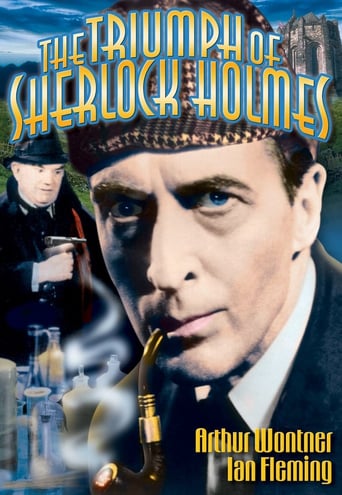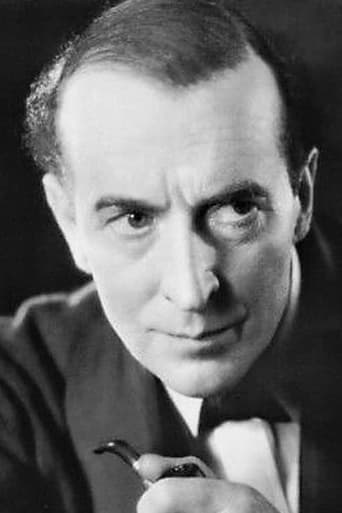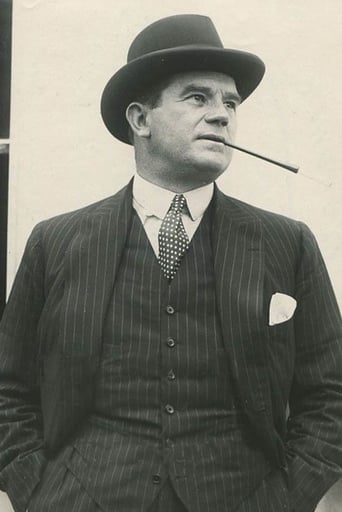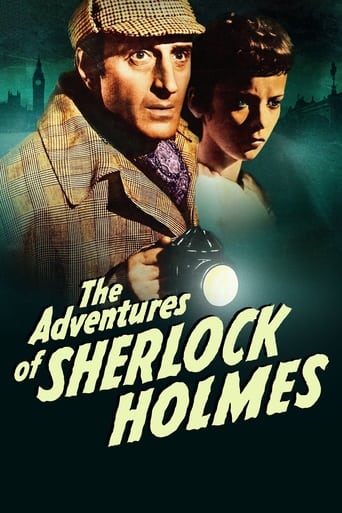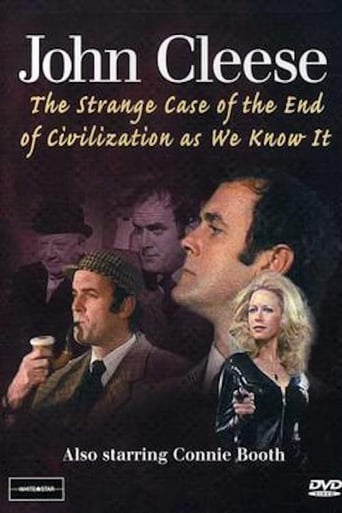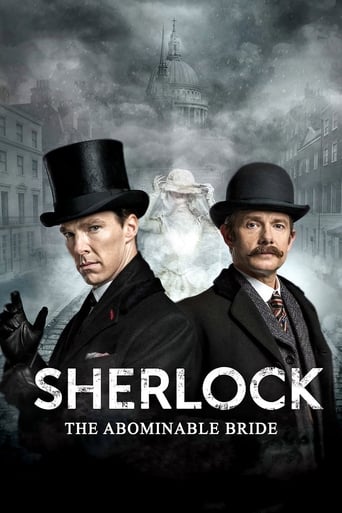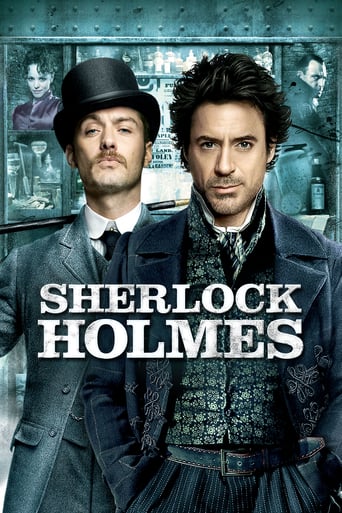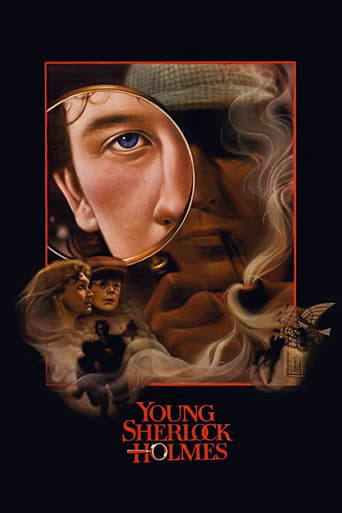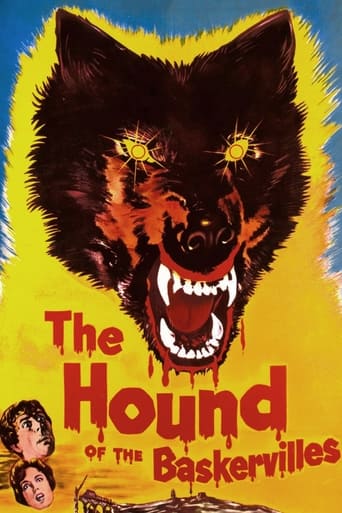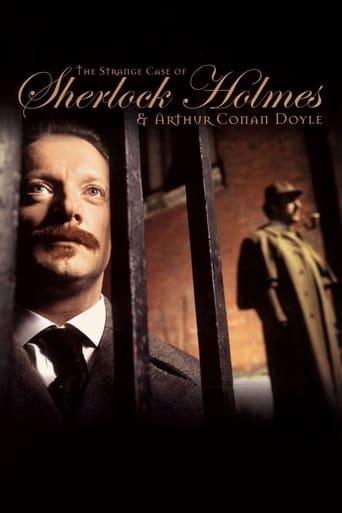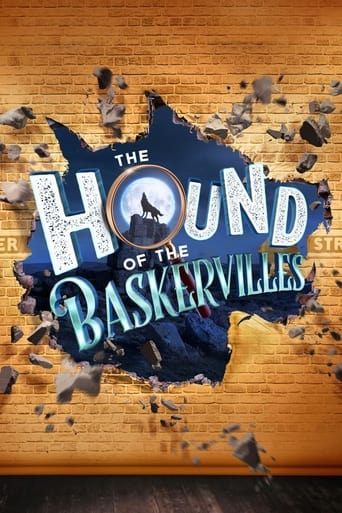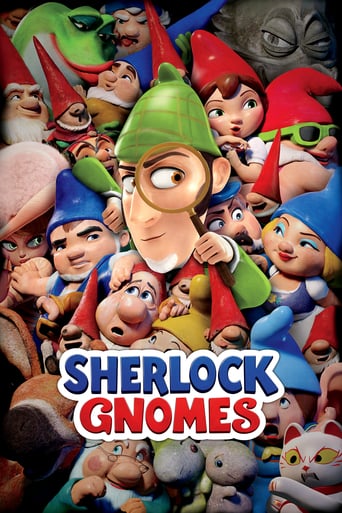The Triumph of Sherlock Holmes (1935)
Holmes, retired to Sussex, is drawn into a last case when his arch enemy Moriarty arranges with an American gang to kill one John Douglas, a country gentleman with a mysterious past. Holmes' methods baffle Watson and Lestrade, but his results astonish them. In a long flashback, the victim's wife tells the story of the sinister Vermissa Valley.
Watch Trailer
Cast
Similar titles
Reviews
If you like to be scared, if you like to laugh, and if you like to learn a thing or two at the movies, this absolutely cannot be missed.
It’s not bad or unwatchable but despite the amplitude of the spectacle, the end result is underwhelming.
Let me be very fair here, this is not the best movie in my opinion. But, this movie is fun, it has purpose and is very enjoyable to watch.
The movie really just wants to entertain people.
It's based on "The Valley of Fear," Conan-Doyle's last and least novella. Poor Conan-Doyle. He'd grown to dislike Sherlock Holmes. The character was a cash cow but had become Frankenstein's monster. And there is nothing more disgusting than a cow that is a monster except a mixed metaphor.Conan-Doyle had a much larger vision -- writing epic adventure stories. He did write some and a few were popular successes -- "The Lost World" -- but they didn't compare with Holmes. As time went by, Conan-Doyle put less effort into the Holmes stories. They lost their savour. In "The Triumph of Sherlock Holmes" with Arthur Wontner, we can see the result. This is a colorless Holmes -- no dope, no quirks, and some of the deductions are literally incredible.Wontner himself isn't that bad except when compared to Basil Rathbone or Jeremy Brett. Wontner simply isn't a commanding presence. It's too bad because more than any other Holmes he resembles the Sidney Paget illustrations that accompanied the original magazine stories.I suppose one of the ways that Conan-Doyle was able to satisfy his need to write exotic adventures was to insert flashbacks that took us to lands far away from 221b Baker Street. In "A Study in Scarlet" it was Mormons; here it's what seems to be the Wobblies in the Pennsylvania coal country. The back stories are frankly dull.The productions are adequate, no more than that. The set dressings don't look cheesy; they only look stagy. The performances fit into the same category. The most memorable figure is McGinty, the head honcho of the Scowrers, a giant of a man with a voice to match.
Arthur Wontner was re-teamed with Ian Fleming (who had played Dr Watson in The Sleeping Cardinal and The Missing Rembrandt) for The Triumph of Sherlock Holmes (1935), based on Conan Doyle's novel, "The Valley of Fear". Like the novel, the movie contains a considerable flash-back sequence. This seems to have been directed, photographed and recorded by a totally different team than that credited for the main unit. The noisy sound track suddenly disappears, the lighting becomes more slickly atmospheric, the pace steps up, the acting changes from throw-away (Wontner) and over-emphatic (Harding, Fleming) to vigorously forceful and realistic, while the static, stage-like groupings in the main story are replaced by a more dynamic, cinematic style of fast pacing, tight frame arrangements and astute use of close-ups. Another indicator of behind-the-camera changes is that Jane Carr's performance bears little resemblance to her fluctuating, unsure interpretation in the Hiscott sequences (although admittedly this is in tune with her character). I usually finds flashbacks annoying but this one proves actually more exciting than the main movie. Still, Wontner does have his moments of glory, Fleming is an agreeable Watson, and there is sufficient action and deduction to keep fans highly involved, despite the technical short-comings of even the best of the currently available DVDs.
"The Triumoph of Sherlock Holmes" recently came out on DVD. First off the copy is quite awful, although from what I have read there aren't very good video sources to take from. Secondly, Arthur Wontner's Holmes is excellent. He looks like Holmes and he acts like Holmes as portrayed by Conan Doyle.The movie is based on one of the longer length stories, "The Valley of Fear". The story includes a long flashback to Pennsylvania coal country in the US and is included in the movie. It is very well done. As near as I can tell the scenes in America were done with American actors, including the well known character actor Ben Welden, except for Boss McGinty played by Roy Emerton who does a great job.The movie contains a good many Holmesian aphorisms taken from other stories. While it's always a pleasure to hear them I can imagine if you saw movie after movie and heard the same lines multiple times it could become a little annoying.I particularly liked the Watson of Ian Fleming as every time Holmes introduces himself and neglects Watson, Watson nudges him with his arm. A small bit but nicely done.
An excellent Holmes story that benefits greatly by going directly to the source (mainly Arthur Conan Doyle's "The Valley Of Fear") and not only sticking pretty much to the original plot but also using a lot of the great dialog that Doyle wrote for Holmes. The problem with translating Sherlock Holmes to the screen (or writing new Holmes stories in full-length novel form) is that Doyle's original creation was such a brilliant detective he solved most mysteries almost instantly. Therefore, the short story was the best medium in which to present his adventures. If a story has to be stretched out to novel or feature film length, some other means had to be found to fill out the time and pages. Thus, beginning with Basil Rathbone (or maybe even earlier with William Gillette's original play), Sherlock Holmes became an action hero rather than a thinker. Arthur Wotner's Holmes and the script of "Triumph" retains the original essence of "the best and wisest man I have ever known" and shows us that he can delight and thrill us even more by seeing him as he was intended to be seen.
